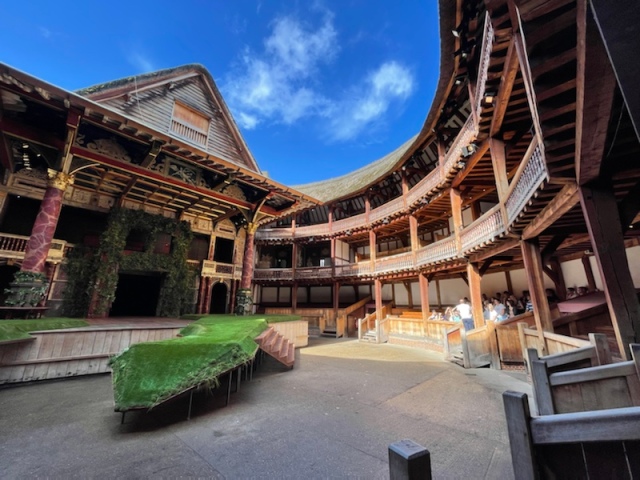
We could imagine ourselves as a leading actor in a play. There are other actors, but we have something unique… The play is written around our character.
We are the only performer who can describe the play from the inside – our ‘inside’. We infer that others can do this, but we have a unique perspective on our view of the play. We have no idea whether their description of the play-from-the-inside is anything like another’s.
From childhood, we learn language: a means to describe our experience, and hopefully share it accurately. We only have language – and perhaps art – to achieve this sharing.
This reliance on language as sharing the world takes up a major part of our attention, and therefore our mind. Our mind is the part of our identity that faces the world. Our mind can do other things, but our upbringing has focussed it outwards.
Our world is the picture painted by the senses. There are thoughts and emotions, too, but they don’t have the reality of the things brought to us by sight, smell, touch, hearing and taste. These relate us to the history of all life on Earth.
When we decide that enough ‘outwards’ is enough, we can summon the will to break the chains of attention that lock us into the script of the play.
If we do this, we might notice that what we thought of as ‘us’ is not singular but plural. It comes as a surprise to learn that we actually inhabit all the characters of the play, to different degrees. They all affect how the play moves through its stages, but we don’t share the same affinity with each of them.
It may take us many performances of the play to get to know each of the characters well enough to find out where our ‘home’ character is. We discover, often with a shock, that there is a central character that we remember ‘being’.
We step back into this central character with more power and authority… but our boldness gives us the will – and now the power – to challenge the whole thing. Why are we in a play? Who wrote our script?
With an internal noise like ripping curtains, we gaze around the theatre to see the smiling patrons. Casting aside the months of learned script, we stop speaking and walk to the edge of the stage, asking:
“Who am I?”
The lone figure in the crowded audience rises to their feet. They stride towards the steps and up onto the stage, facing us with a heart that glows. We have no choice but to embrace them; we have no desire to do anything but embrace them.
“I’ve been looking for you for a long time,” they say. “You’re the part that forgot its actor…”
Within that embrace, they spin us around, and our opened mind and heart recognise the same shining eyes from everyone in the theatre…
The play has ended. But a new one has just begun…
©Stephen Tanham 2022
Stephen Tanham is a Director of the Silent Eye, a journey through the forest of personality to the dawn of Being.
http://www.thesilenteye.co.uk and http://www.suningemini.blog

